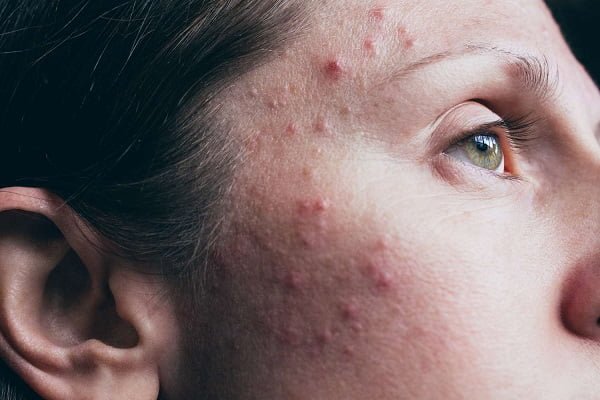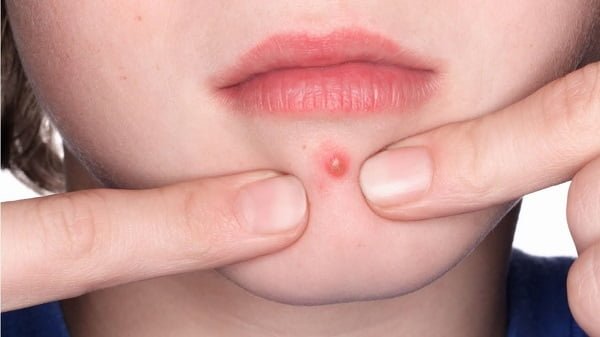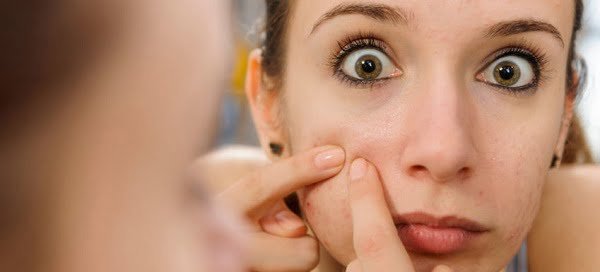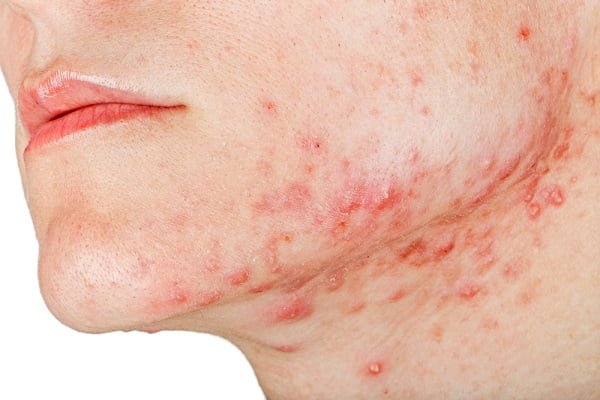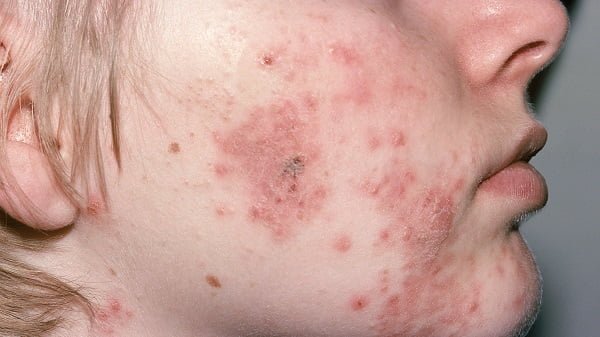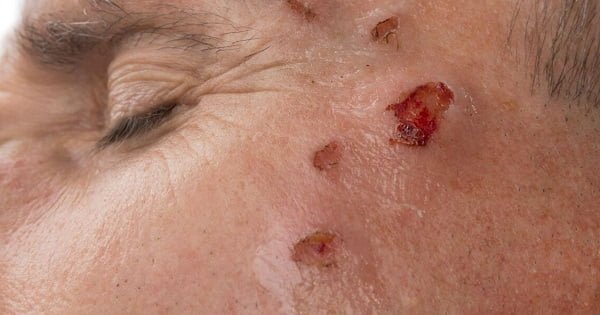Introduction
Mucous cysts on the lip, also known as mucoceles, are common benign growths that can develop on the inner lip or the floor of the mouth. While they are typically harmless, mucous cysts can cause discomfort and cosmetic concerns for those affected. In this blog, we’ll delve into what mucous cysts are, their causes, symptoms, and available treatment options.
What is a Mucous Cyst on the Lip?
A mucous cyst on the lip, or mucocele, is a small, fluid-filled sac that forms when saliva becomes trapped beneath the surface of the skin or mucous membrane. These cysts can vary in size and may appear as clear, bluish, or whitish bumps on the lip. Mucous cysts are usually painless but can become swollen or tender if they rupture or become infected.
Causes of Mucous Cysts on the Lip:
Mucous cysts on the lip can develop due to several factors, including:
– Trauma or injury to the lip, such as biting or sucking on the lip
– Damage to the salivary glands or ducts, which can lead to saliva leakage and cyst formation
– Chronic irritation or inflammation of the lip tissue, such as from lip piercings or oral habits like smoking or chewing tobacco
Symptoms of Mucous Cysts on the Lip:
The most common symptoms of mucous cysts on the lip include:
– A small, painless bump or swelling on the inner lip or floor of the mouth
– Clear, bluish, or whitish fluid inside the cyst
– Discomfort or tenderness if the cyst becomes irritated or infected
– Difficulty speaking, eating, or performing oral activities if the cyst is large or located in a sensitive area
Treatment Options for Mucous Cysts on the Lip:
In many cases, mucous cysts on the lip will resolve on their own without treatment. However, if the cyst is causing discomfort or affecting the individual’s quality of life, several treatment options may be considered, including:
– Observation: If the mucous cyst is small and asymptomatic, a healthcare provider may recommend monitoring it closely without intervention.
– Surgical Removal: For larger or persistent cysts, surgical excision may be necessary to remove the cyst and prevent recurrence.
– Laser Therapy: Laser treatment can be used to vaporize the cyst and promote healing without the need for incisions or sutures.
– Corticosteroid Injections: In some cases, corticosteroid injections may be used to reduce inflammation and shrink the size of the cyst.
Prevention Tips for Mucous Cysts on the Lip:
While mucous cysts on the lip may not always be preventable, there are steps individuals can take to reduce their risk of developing them, including:
– Avoiding lip biting, sucking, or other oral habits that can traumatize the lip tissue
– Practicing good oral hygiene, including regular brushing, flossing, and dental check-ups
– Protecting the lips from injury or irritation, such as wearing lip balm with sunscreen and avoiding harsh weather conditions
Home remedies for mucous cysts on the lip
- **Warm Compress:** Applying a warm compress to the affected area can help reduce swelling and discomfort associated with mucous cysts. Simply soak a clean cloth in warm water, wring out excess moisture, and hold it against the cyst for 10-15 minutes several times a day.
- **Salt Water Rinse:** Gargling with warm salt water can help cleanse the mouth and promote healing of mucous cysts. Mix a teaspoon of salt into a glass of warm water, stir until dissolved, and rinse your mouth thoroughly for 30-60 seconds. Repeat this process several times a day.
- **Aloe Vera Gel:** Aloe vera gel has soothing and anti-inflammatory properties that can help reduce swelling and discomfort associated with mucous cysts. Apply a small amount of pure aloe vera gel to the cyst several times a day to promote healing.
- **Honey:** Honey has natural antibacterial properties that can help prevent infection and promote healing of mucous cysts. Apply a thin layer of raw honey to the cyst and leave it on for 15-20 minutes before rinsing off with warm water. Repeat this process several times a day.
- **Turmeric Paste:** Turmeric has anti-inflammatory and antimicrobial properties that can help reduce swelling and promote healing of mucous cysts. Mix turmeric powder with water to form a paste and apply it to the cyst. Leave it on for 15-20 minutes before rinsing off with warm water. Repeat this process once or twice a day.
- **Tea Tree Oil:** Tea tree oil has natural antibacterial and antiseptic properties that can help reduce inflammation and prevent infection of mucous cysts. Dilute tea tree oil with a carrier oil such as coconut oil or olive oil and apply it to the cyst using a cotton swab. Leave it on for 10-15 minutes before rinsing off with warm water. Repeat this process twice a day.
- **Avoid Trauma:** Avoid biting, picking, or irritating the mucous cyst, as this can worsen symptoms and delay healing. Be gentle when brushing or flossing your teeth to avoid aggravating the cyst.
- **Stay Hydrated:** Drink plenty of water to stay hydrated, as this can help promote healing and reduce inflammation associated with mucous cysts.
While home remedies can provide relief for mucous cysts on the lip, it’s essential to consult a healthcare professional if the cyst persists, grows larger, or becomes painful. In some cases, medical intervention may be necessary to remove the cyst safely and effectively.
Conclusion:
Mucous cysts on the lip, or mucoceles, are common benign growths that can occur due to trauma, salivary gland damage, or chronic irritation of the lip tissue. While they are typically harmless, mucous cysts can cause discomfort and cosmetic concerns for those affected. If you have a mucous cyst on your lip that is causing symptoms or concerns, it’s essential to consult a healthcare provider for proper evaluation and treatment recommendations. With appropriate care, most mucous cysts can be effectively managed and resolved, allowing individuals to enjoy healthy, comfortable lips once again.
Faq related to "What is a mucous cyst on lip"
A mucous cyst on the lip, also known as a mucocele, is a benign, fluid-filled sac that develops beneath the surface of the skin or mucous membrane of the lip. It typically forms when saliva becomes trapped due to damage or blockage of the salivary glands or ducts.
Mucous cysts on the lip are generally harmless and non-cancerous. While they can cause discomfort and cosmetic concerns, they rarely pose serious health risks. However, it’s essential to have any new or unusual growths on the lip evaluated by a healthcare professional to rule out other potential conditions.
Mucous cysts on the lip can develop due to various factors, including trauma or injury to the lip tissue, damage to the salivary glands or ducts, chronic irritation from lip piercings or oral habits, and certain medical conditions. Saliva leakage into the surrounding tissues leads to the formation of a cyst.
Mucous cysts on the lip typically appear as small, clear, bluish, or whitish bumps beneath the surface of the skin or mucous membrane. They are usually painless unless they become irritated or infected. Other lip lesions, such as cold sores, oral ulcers, or lipomas, may have different characteristics and require different treatments.
In some cases, small mucous cysts on the lip may resolve spontaneously without treatment. However, larger or persistent cysts may require medical intervention to drain or remove them. It’s essential to monitor the cyst and seek medical attention if it grows larger, becomes painful, or causes other symptoms.
Treatment for mucous cysts on the lip depends on the size, location, and symptoms of the cyst. Options may include observation, surgical removal, laser therapy, corticosteroid injections, or cryotherapy. Home remedies such as warm compresses, salt water rinses, and natural topical treatments may also provide relief.
While mucous cysts on the lip can be effectively treated or removed, there is a risk of recurrence, especially if the underlying cause is not addressed. To reduce the risk of recurrence, it’s essential to follow proper oral hygiene practices, avoid lip trauma, and address any underlying factors contributing to cyst formation.
It’s advisable to consult a healthcare professional if you notice any new or unusual growths on your lip, especially if they persist, grow larger, become painful, or cause other symptoms. A healthcare provider can evaluate the cyst, determine the underlying cause, and recommend appropriate treatment options.



